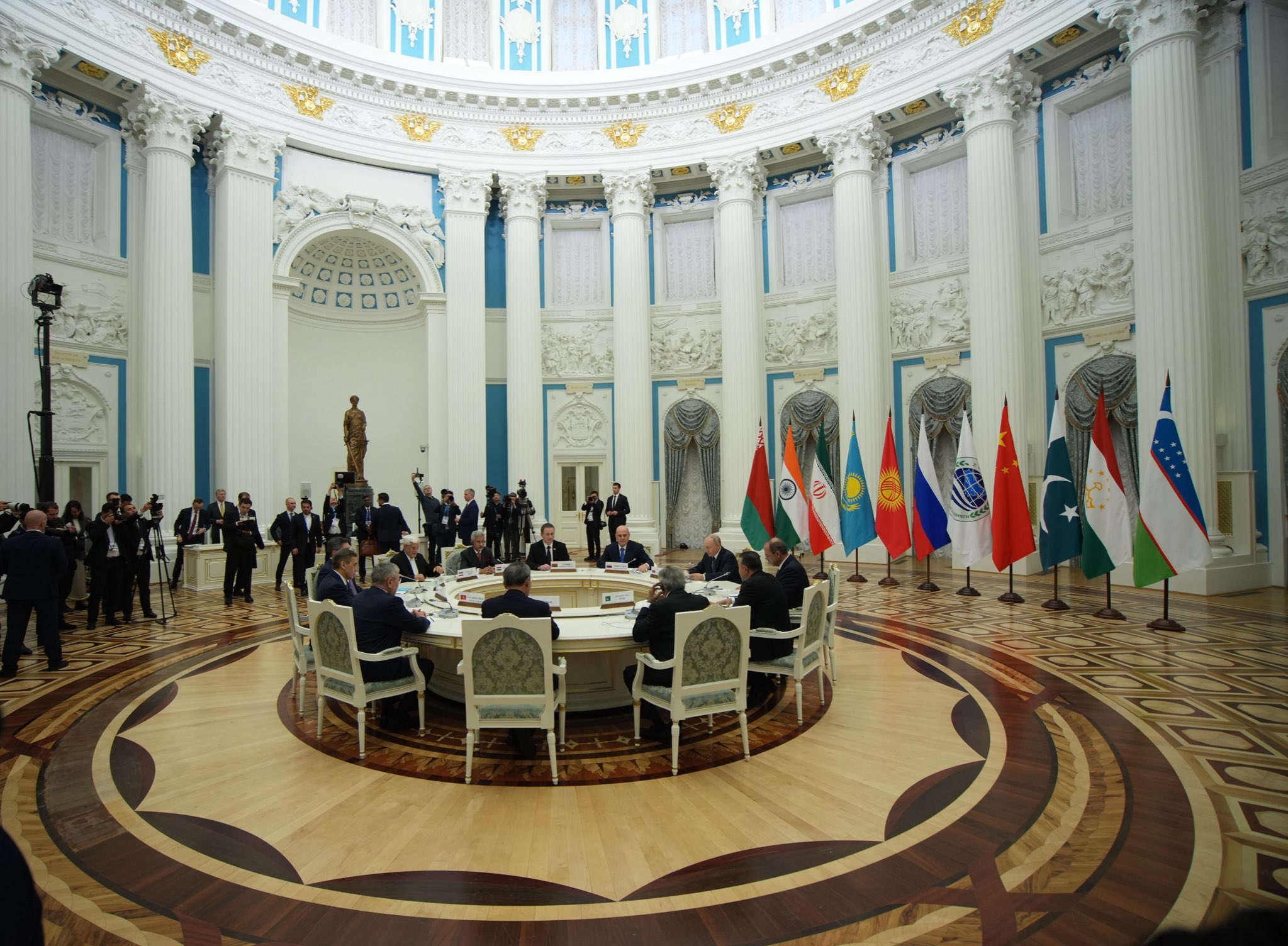Putin Touts SCO as Pillar of Eurasian Integration, Pushes National Currencies, Energy Ties, and AI Cooperation
In a high-stakes address at the Kremlin’s Catherine Hall, President Vladimir Putin positioned the Shanghai Cooperation Organization (SCO) as a driving force for Eurasian integration and economic resilience amid escalating global volatility.
Welcoming heads of government from SCO member states following the Council meeting chaired by Russian Prime Minister Mikhail Mishustin, Putin asserted that the group’s future lies in “deepening sectoral cooperation, building logistics corridors, and accelerating financial sovereignty.”
 |
| Russian President Putin along with Heads of SCO Delegations. Image Via: Indian EAM Jaishankar |
Russia’s trade turnover with SCO nations hit $409 billion in 2024, a figure led by China but also rising across the broader bloc. Critically, over 97% of these transactions were executed in national currencies. This fact was framed by Putin as a defiant success amid “unilateral sanctions, tariff restrictions, and wars.”
The Russian president confirmed that consultations are underway to establish an SCO Development Bank and expand payment, depository, and credit infrastructure. Also on the agenda: mutual recognition of credit ratings and the launch of a database for industrial investment projects.
“These efforts are essential to protect our economies and build technological sovereignty,” Putin said, pushing for joint action in AI, import substitution, and digital innovation.
Transport and energy were core to Putin’s pitch. He emphasized Russia’s role in trans-Eurasian connectivity, citing active investment in the North-South Corridor and Northern Sea Route. Putin also used the opportunity to announce the keel-laying of a new nuclear-powered icebreaker and underscored Russia’s Arctic ambitions.
Calling for stronger energy coordination under the SCO’s Tianjin roadmap, Putin reaffirmed Russia’s commitment to “reliable supply chains” despite geopolitical headwinds.
Beyond economics, Putin stressed the SCO’s role in peace, security, and balanced Eurasian governance. He reiterated support for Russia’s Greater Eurasian Partnership, which is an umbrella concept intended to align the Eurasian Economic Union, China’s Belt and Road Initiative, and other regional integration frameworks.
Humanitarian, cultural, and youth exchange programs also featured prominently in his remarks. Putin cited education, environmental cooperation, and sports diplomacy as crucial tools for strengthening the SCO’s “shared civilizational space.”
“Russia is sincerely committed to the closest possible partnership with the SCO states. Working together, we can achieve truly impressive results,” the Russian President stated.
